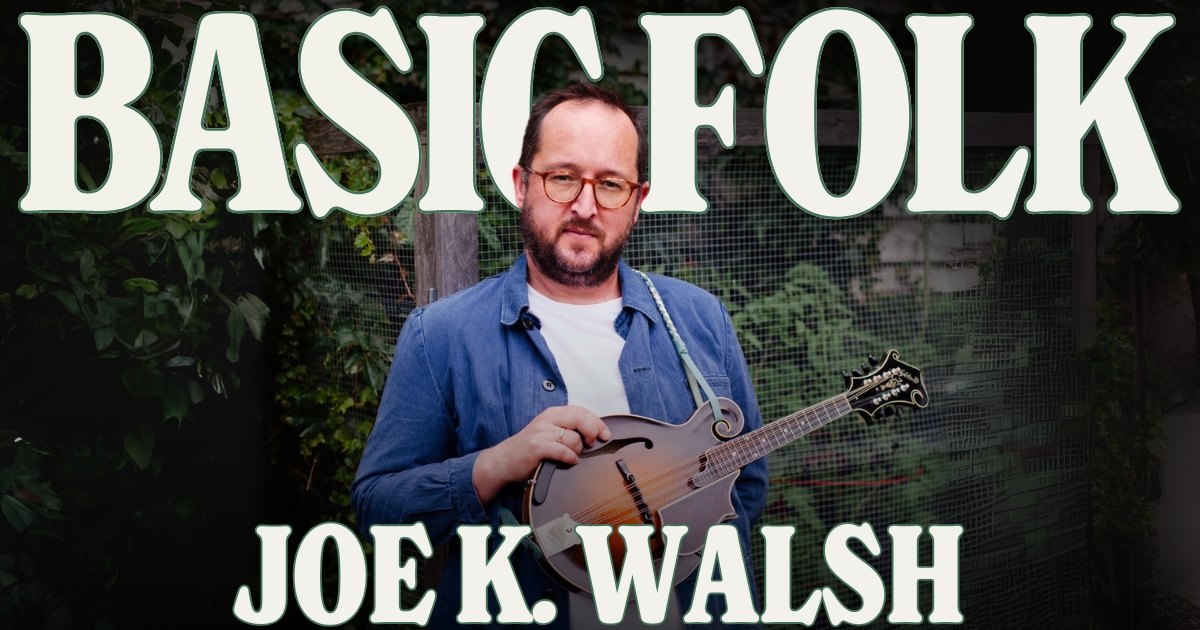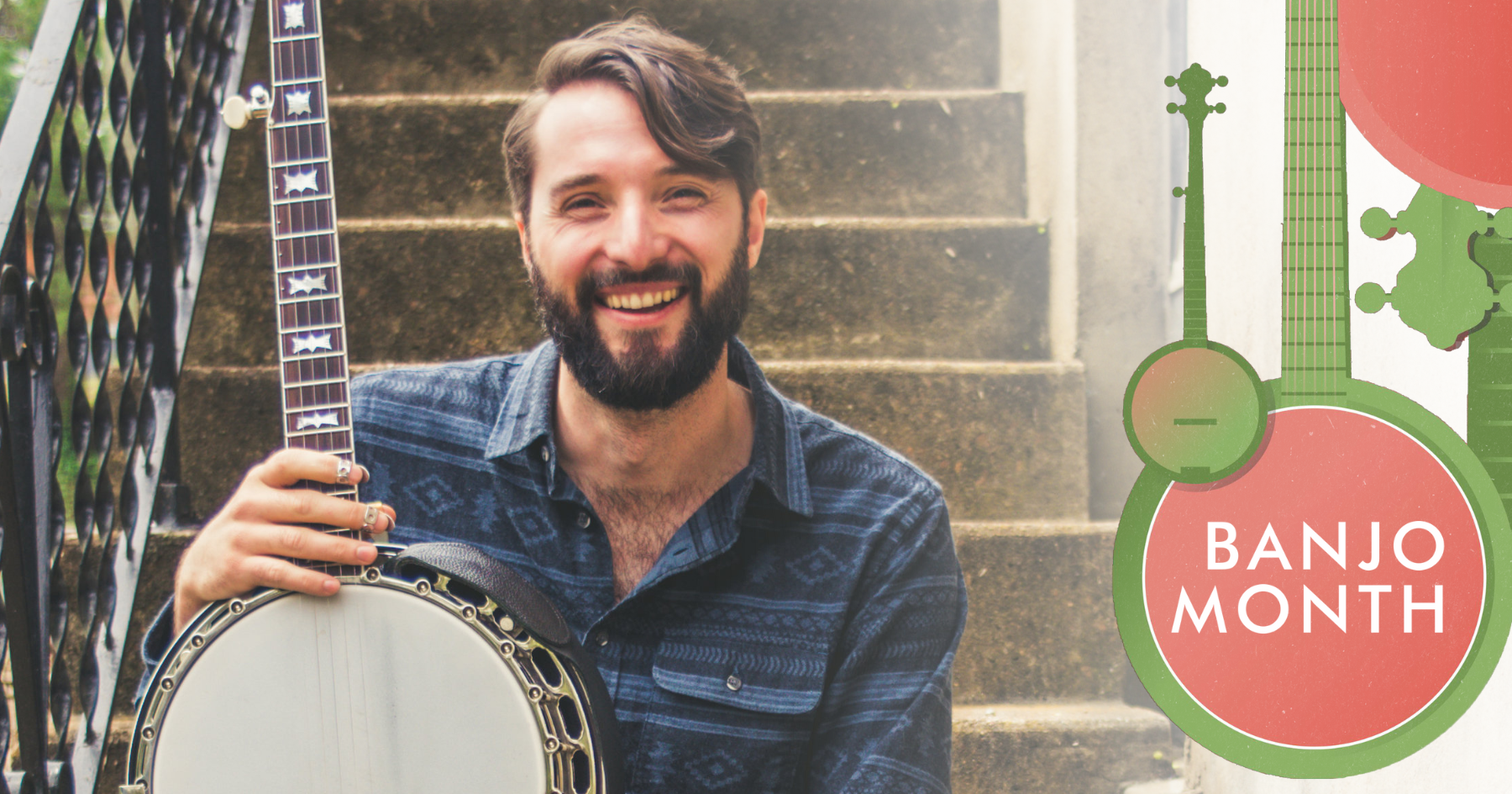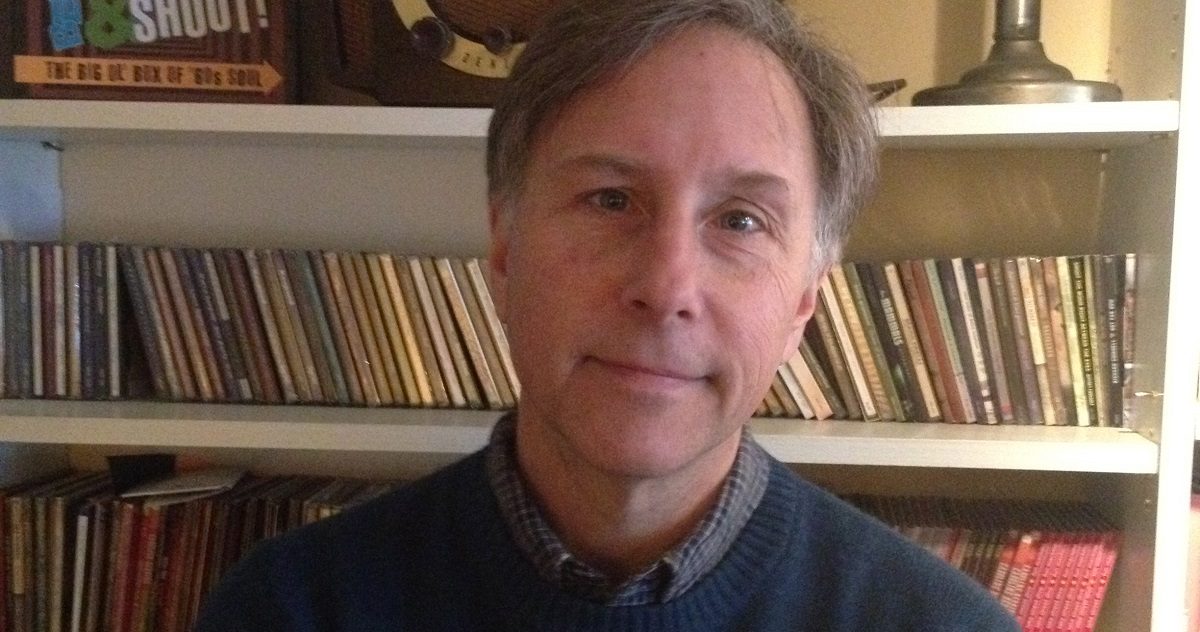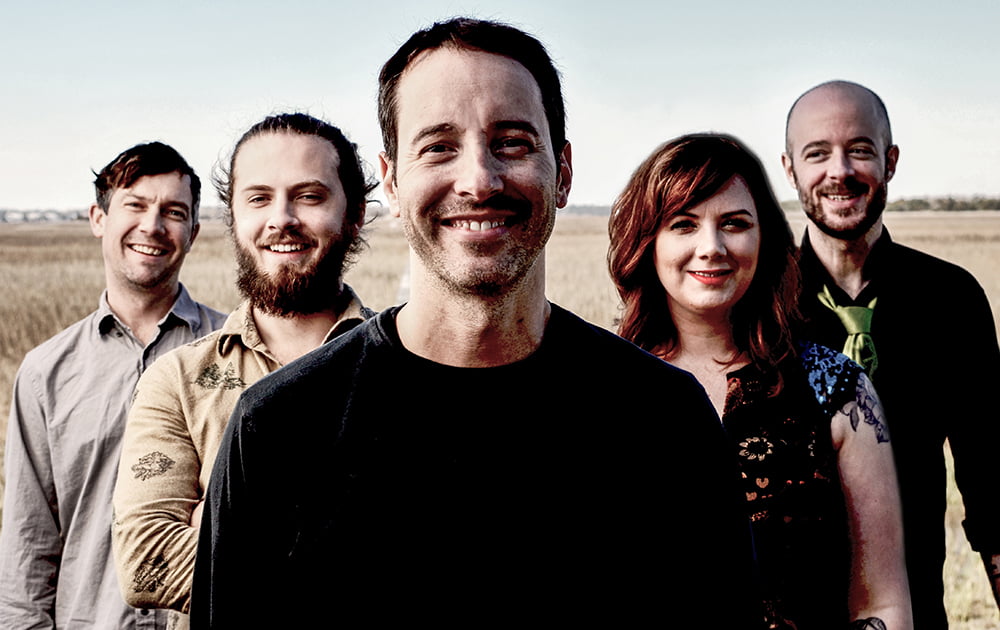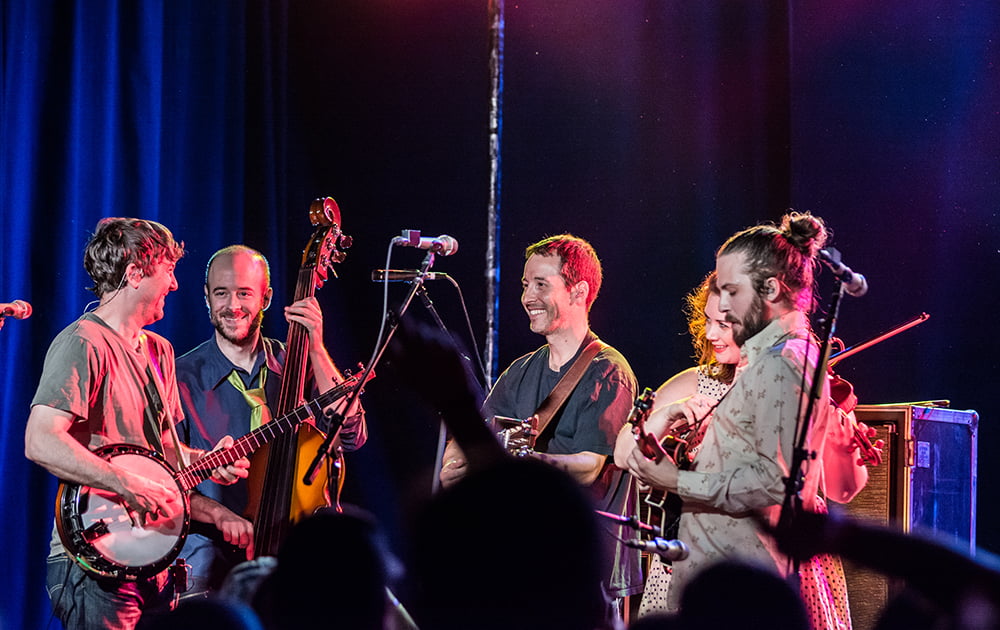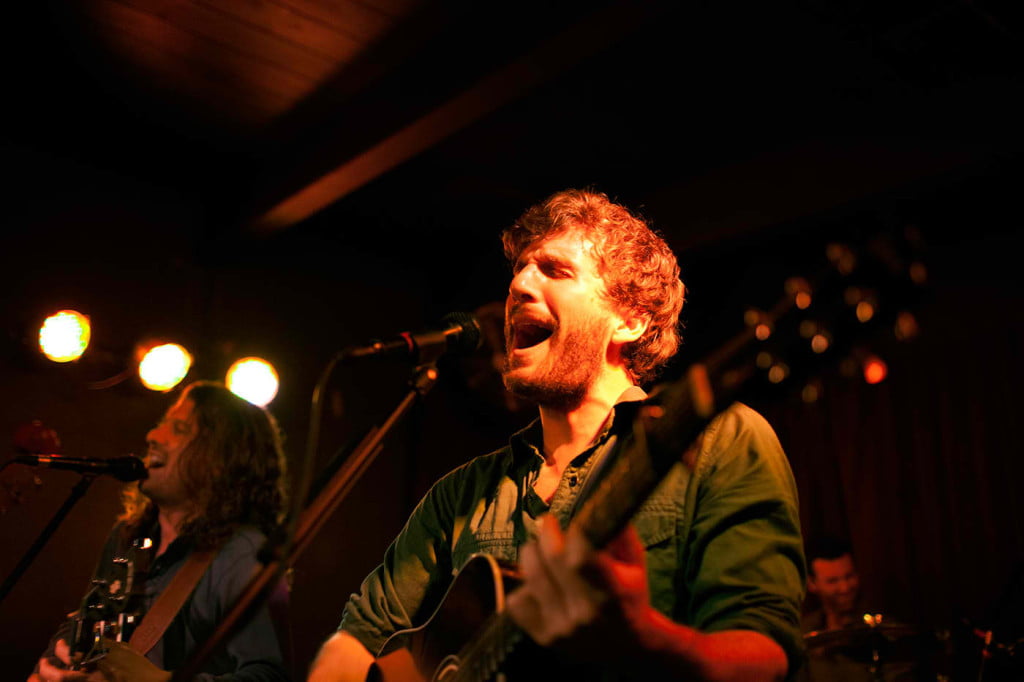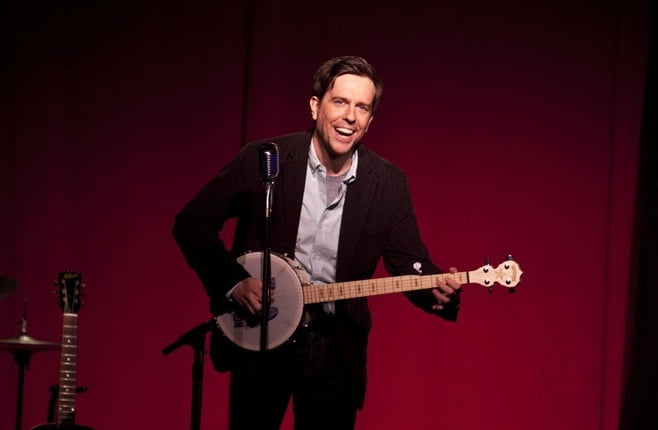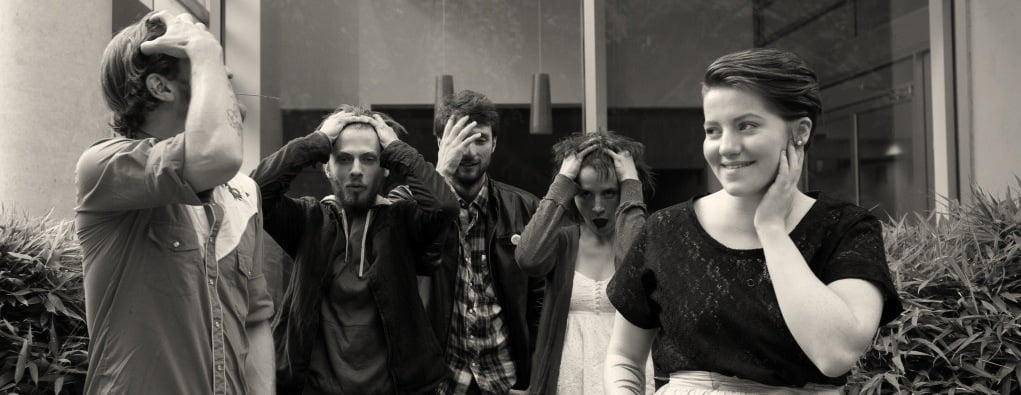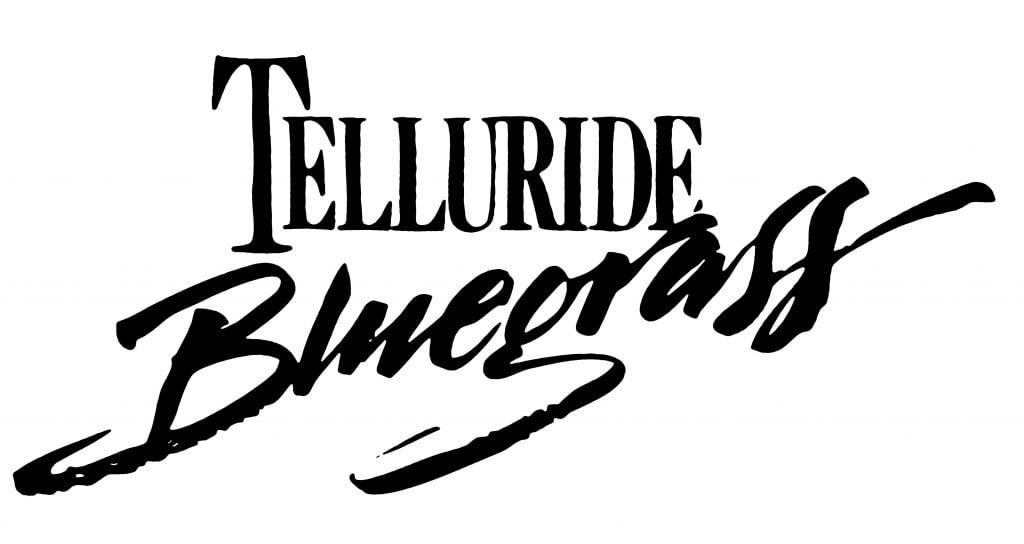Change rarely comes easy. But when, after 17 years, an established outfit like Yonder Mountain String Band parts ways with a founding member, it can have an even more profound effect. That’s the predicament the Colorado-based combo found themselves in April of 2014 when singer, songwriter, and mandolin player Jeff Austin cited personal and creative differences as a reason for making the decision to venture out on his own. As a result, YMSB suddenly found itself at a critical crossroads.
Fortunately then, remaining founding members Adam Aijala (guitar, vocals), Ben Kaufman (bass, vocals), and Dave Johnston (banjo, vocals) opted to re-group and press on with not one, but two new members added to the fold — mandolin player Jacob Jolliff, of Joy Kills Sorrow, and fiddler Allie Kral, formerly of the band Cornmeal. The pair joined YMSB on tour and, a year later, in the studio. They are now officially members of the new band line-up.
Black Sheep, the album that resulted from the reconfigured quintet, finds Yonder Mountain not only more song-centric than ever before, but also more willing to expand their musical parameters, resulting in a sound that’s as focused as it is frenzied. Known for its fiercely devoted fan following among the festival faithful and an approach based on both bluegrass and populist precepts, the band has initiated a new musical chapter.
Catch Yonder Mountain String Band at the Northwest String Summit this weekend (July 16-19).
Let’s start with the obvious. How did Jeff’s departure affect the making of the new album?
Aijala: Black Sheep was a project of firsts. The first full-length album that was self-produced. The first album with our new lineup. The first album that I helped engineer. The first album with fiddle on the entire record. So, yes, it was a bit different this time around. The process was indeed a lot of work, but it was good work, so therefore it felt really easy. Musically, it was great to work with Allie and Jake. And because we self-produced, I felt this project had much more collaboration than past records and we had an absolute blast doing so. We really felt like a team. I can't wait to record the next record.
How did you go about recruiting Allie and Jacob? Having been such a tight-knit band for so long, was it awkward bringing new people into the fold?
Kaufman: The only thing we knew for sure was that we wanted to have a mandolin in the band. Beyond that, we were open, but not attached, to adding a fifth member; and if we did, we could safely assume it would be either a dobro or a fiddle. We didn't really advertise that there were job openings. The word spread on its own … and quickly. One of the first phone calls that came in was from our friend and former manager D.J. McLachlan. He told us about Jake, whom he managed in a band called Joy Kills Sorrow. He basically said Jake's talent on the mandolin would be immediately apparent and speak for itself. But the more important thing was D.J.'s vouching for Jake's heart and character. When you travel in buses and vans and other tight quarters, a person's vibe is extraordinarily important. D.J. knows us all inside and out, so when he said Jake would be a great fit, I trusted him implicitly.
One of the most intriguing things to me was that Jake had never heard Yonder's music. We'd been at one common festival — when Joy Kills Sorrow played the Northwest String Summit. But they didn't get a chance to hang out. It was exciting to me that Jake wouldn't have any preconceptions about how the mandolin was "supposed to sound" in Yonder. We all checked out YouTube and saw what Jake could do and then invited him into the studio to record on Black Sheep. It just worked from the first note and we all knew we'd found our guy.
With Allie, it happened a little differently. We were on the fence about adding a fifth member. But then Allie came to a show in Portland, OR, that we played. She sat in and just blew the roof off the place. I can't remember if we asked her to come to the next show or if it just so happened that she was going to be in Seattle anyway. The point is, we played with her the next night and she blew the roof off the joint again. After that, our sound engineer Ben Hines cornered us and basically said we'd found our fifth member. It really wasn't a tough sell. Allie is talented on so many levels and she has this X-factor that I can't quite describe. It's like, she steps up to the microphone to solo and the crowd is already going nuts. She hasn't played a note yet and they're freaking out. She also brings down the house when she sings and she’s just intrinsically loveable, in my opinion. There is a deficit of women jam-band musicians … like, maybe three of them exist in the whole world. Somehow I feel that we achieved a perfect balance when Allie agreed to join Yonder Mountain.
Allie, what was it like to join a band with such a lengthy history and such a consistent line-up? Was it intimidating, challenging, exciting?
Kral: It has been such a thrill. Excitement is the most accurate feeling.
Did you ever find it awkward to assert yourself? Did you feel like you had been given the opportunity to fully contribute?
Kral: They have really encouraged my opinion and participation since day one. I think when you start any new relationship, there's usually a bit of a feeling out process. But I really didn't experience that here. They let me have full control over my solos and musical ideas, while sticking to the form of the song that had already been established. I think the addition of a new instrument naturally adds a different depth and dimension to everything we play. I have been incredibly conscious of how I add my flavor, while staying true to the original beauty of the music.
Ben, Adam, when Jeff announced his departure last year, was it a surprise? What sort of emotions were brewing at the time?
Aijala: The outside world saw the split as a surprise, but for us it was not. We had been having talks over the previous months about personal happiness and what we all came to realize was that happiness trumps everything else. Life is short so we should be enjoying it. The split was the culmination of those talks and ultimately the best decision for all four of us.
How big a role do your fans fill in your MO? What kind of personal interaction do you strive to maintain with them?
Aijala: I think our fans are as dedicated, involved, and invested as any in the business. Part of the dream I dreamt about being a musician was having a fan base that somehow became family. The Grateful Dead created the paradigm. I wanted something like that, something where the wall between the band and the audience comes down. The thing is, it's not really anything a band can make happen. It happens because the fans make it happen. I think it's crucial that the band dream the dream in that particular way, but it's up to the fans to actualize it. When we started, the original Kinfolk were mailing tapes and CDs of our shows to their friends. It was pre-Internet. It's a blessing that people care about Yonder Mountain in the way that they do. And there's some magic in the experience — something that isn't quite explainable. We do our best to get personal time with our fans. Social media helps in that way, but the very best is when we get a chance to hear people's stories from their own mouths. That usually happens at festivals. I'm humbled by the impact we've had on people.
Improvisation seems to play a prominent role in your live performances.
Aijala: The majority of the time we improvise is in sections of songs specifically designated as, for lack of a better term, the "jam section." Although there are many "song" songs and not "jam" songs where we improvise a solo each time we perform, I really enjoy those designated jam sections where the five of us are feeding off each others ideas. I think it's a very important part of our live show because it gives something fresh to both ourselves and the fans.
Allie, how familiar with the band were you prior to joining?
Kral: Very. I had been playing at the same venues and festivals, so our paths frequently crossed.
Would you classify yourselves as a bluegrass band or a jam band?
Kaufman: Yonder has always had one foot in the bluegrass world and one in the jam scene. And I think it's because we have a deep love and respect for both genres. When we started out, we got most of our gigs at jam band festivals. Basically we became the bluegrass band for the jam band crowd, while at the same time becoming the jam band for the bluegrass crowd. However, the term "jam band" is really misleading. Ultimately, it is descriptive of an audience that can get into all genres of music and approaches every performance with an open mind.
Allie, What's been your experience on the road with YMSB? Have you discovered anything that's taken you by surprise in terms of personalities, quirks, or fan reactions?
Kral: It's been so refreshing how welcome Yonder has made me feel. We all get along so well; it's like we've been playing together for years. Quirks? We all have them. We are musicians after all! The fans reactions have been impressive. I think most people are pumped to see the band continue thru this rebirth.

After 17 years, how do you keep yourself from becoming complacent or, worse yet, repeating yourselves? How do you keep the energy fresh?
Aijala: We obviously feel very energized these days because of the new line-up. Even though Ben, Dave, and I have been playing together for all these years, adding Jake and Allie to the mix gives our old songs new light. We also continue to do a completely new setlist every night and we're at the point now where we can play almost five full shows — 10 sets –without repeating a song.
Kaufman: We aren't happy unless we're creating, playing, writing, etcetera. I think we'd be in greater danger of becoming complacent if we suddenly had a hit single, made a fortune, and starred in a movie. But we are a blue collar band. And our fans, like ourselves, are prone to get bored with too much repetition. Sometimes it seems like we play a song five times and, if we’re not sick of it, then certainly ready to play something else. I don't know — we're pioneers of the short attention span.
It appears you give your fans lots of credit for inspiring you.
Kaufman: The fans are so receptive and supportive that, on the worst days, we can borrow some of their energy. The world has been looking for an unlimited, renewable source of energy. I think it's already been discovered and it’s called bluegrass. We've been blessed to be a band that is nearly two decades old and, at the same time, is a year old. Playing with Jake and Allie, having to redefine ourselves and fight to stay on top, is a blessing. It's not effortless, but it's so fun that it seems like it is.
Lede photo by Mitch Scobie / Bottom photo by Dorothy St. Claire
